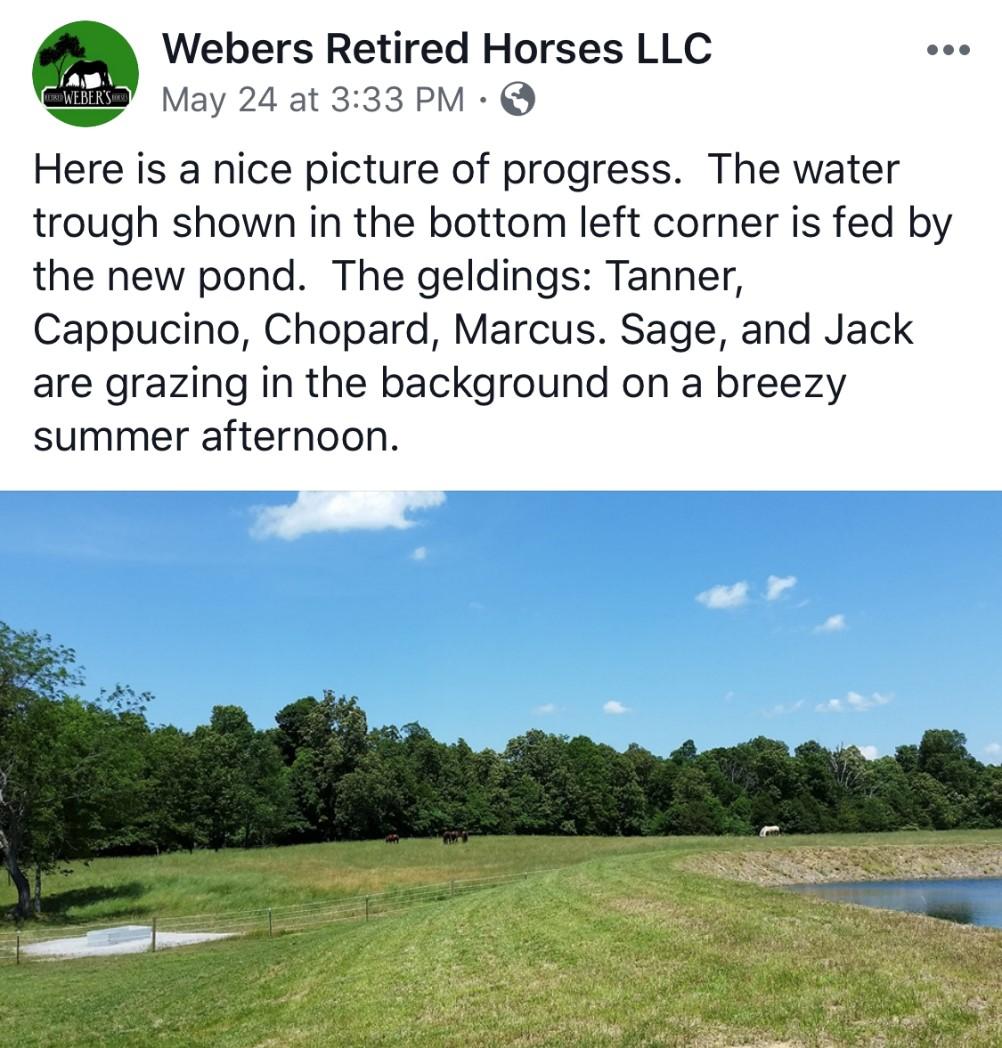UK Receives National Conservation Innovation Grant for Horse Farm Study
UK Receives National Conservation Innovation Grant for Horse Pasture Work
Krista Lea MS, coordinator of UK’s Horse Pasture Evaluation Program within UK’s Department of Plant and Soil Sciences, provided this information.
 The University of Kentucky Department of Plant and Soil Sciences was awarded a Conservation Innovation Grant at the beginning of the year to study the ecological and economic impacts of resource conservation on horse farms. Funded by the Natural Resource Conservation Service (NRCS), which is part of the U.S. Department of Agriculture, this project was chosen among proposals nationally, all competing for a select few funding slots, and was fully funded with a budget of more than $350,000 over three years.
The University of Kentucky Department of Plant and Soil Sciences was awarded a Conservation Innovation Grant at the beginning of the year to study the ecological and economic impacts of resource conservation on horse farms. Funded by the Natural Resource Conservation Service (NRCS), which is part of the U.S. Department of Agriculture, this project was chosen among proposals nationally, all competing for a select few funding slots, and was fully funded with a budget of more than $350,000 over three years.
Ray Smith, PhD, professor and extension forage specialist, and Krista Lea MS, coordinator of UK’s Horse Pasture Evaluation Program, both members of plant and soil sciences within UK’s College of Agriculture, Food and Environment, will lead the project. They have partnered with Jill Stowe, PhD, associate professor in agricultural economics at UK, her graduate student Sarah Sebbane, and Kathryn Payne, PhD, applied forage systems specialist from Virginia Tech.
Smith and Lea plan to visit farms that participated in a previous NRCS cost share enhancement grant in 2016 and collect on-farm measurements such as soil nutrients, plant composition, percent cover, forage quality and yield. Stowe and Sebbane will use the data as well as survey data from these farms to quantify the economic impacts of these improvements.
According to Lea, the research team anticipates economic impacts that include less hay required because improved pastures give higher forage yields; the construction of heavy use areas should reduce vet bills by reducing the incidence of hoof bruises and/or abscesses; and more even manure distribution from improved grazing will lower fertilizer requirements.
“It might seem difficult to justify the upfront expense associated with adopting conservation practices when it comes to pasture management, especially for non-commercial equine operations,” said Stowe. “However, we hope to be able to educate horse farm owners about the economic benefits of adopting these practices through short- and long-run cost savings. By doing so, we can contribute to the increased rate of adoption of these environmentally beneficial practices.”
Payne will work closely with UK to implement several practices on five farms in Virginia. In addition, Pennington Seed has agreed to donate seed for use in the Virginia pasture renovations.
“It’s easy to say that something only works in Kentucky because of its unique horse industry,” Smith said. “Demonstrating these practices and economic benefits in areas with a very different equine population is crucial for having impacts across the country.”
“The 2016 grant was a great success, with many more farms interested than we could accommodate, and successful conservation practices implemented. We hope to build on that, and put some real numbers to those practices. The hope is that these practices, and the benefits we can show from them, will encourage other farms to implement them as well,” said Lea.
Cost share programs are available to horse farms in Kentucky through NRCS and the Kentucky Governor’s Office of Ag Policy. These programs vary by county, so the best way to stay up to date is to have regular contact with your local NRCS and Cooperative Extension offices. Many offer newsletters to keep people informed of approaching deadlines or new programs. NRCS is also currently seeking proposals for on-farm conservation and soil health test projects. Learn more at https://www.nrcs.usda.gov/wps/portal/nrcs/detail/national/newsroom/releases/?cid=NRCSEPRD1555070
